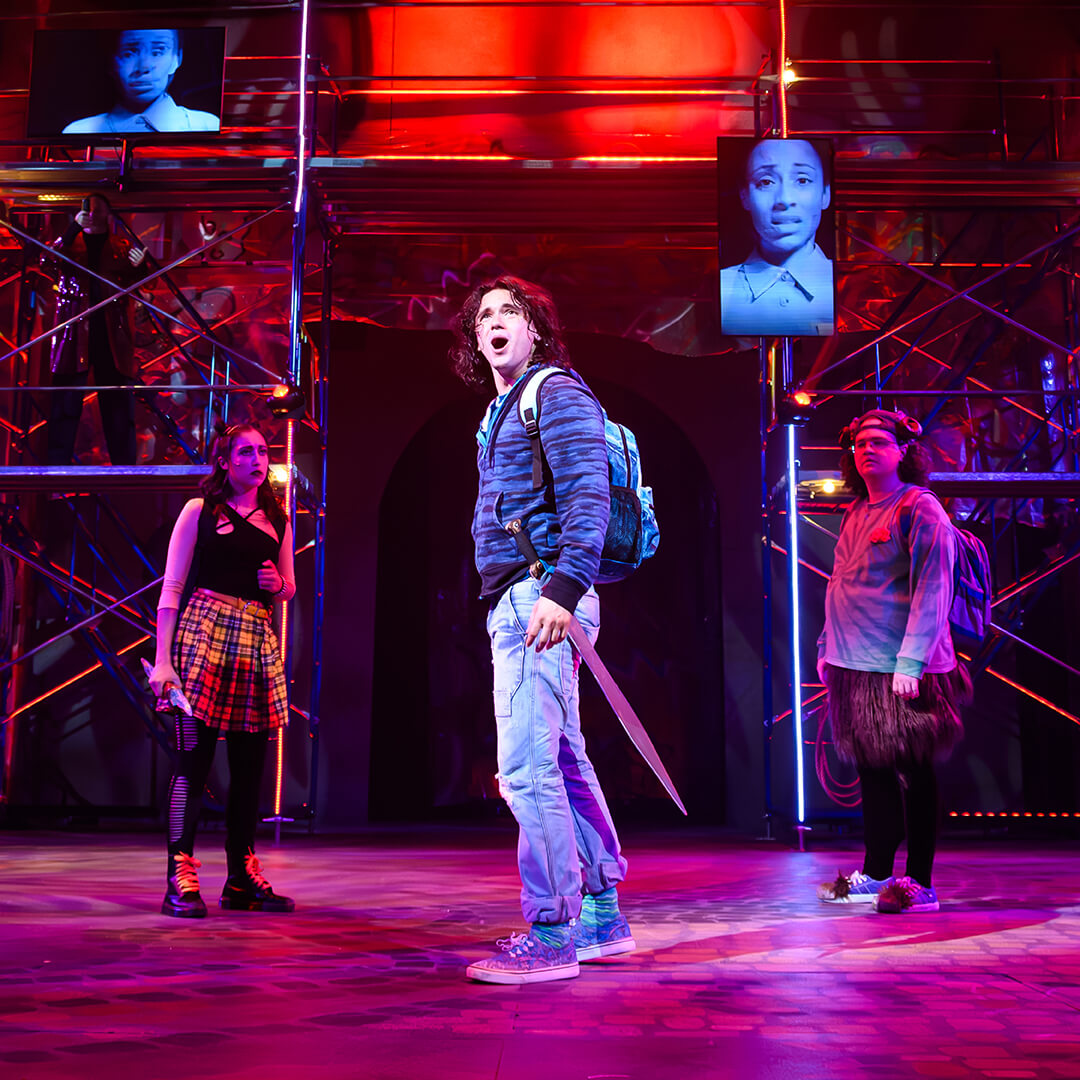
Theatre at Home- The Lightning Thief: The Percy Jackson Musical
Continue the adventure after the show...
Learn MoreOrlando Family Stage
The Finest in Family Theater
1/20/2022
“What happens to a dream deferred, does it dry like a raisin in the sun?” ~Lorraine Hansberry
| As a little brown girl growing up in Flint, MI, a town where most people were either factory workers or medical workers, I wanted something more. I had a dream of having a career in performance, on Broadway or in films, winning a Tony, Academy Award, or both. I was fortunate enough to have a family who appreciated, participated, and passed on a love of language and arts early in my life. This type of support is not always available, which brings up the question of what happens to those students whose families have limited hopes for their futures? |
What if a family’s hope hangs on whether or not their son or daughter is tall enough to play basketball for the NBA or fast enough for the NFL? These were the two dreams many of my friends held onto tightly. Many black and brown children limit and hang their hopes on dreams that may not be realistic and may never be realized. Unless these students encounter an educator, mentor, or friend that can infuse elements to help the student color outside of this box, students may perform at a lower level than they are capable of. What happens to those children?
Studies from Americans for the Arts on the impact of arts education say,
And still,
These studies provide evidence of the need for arts in the everyday lives of students, but that we must be determined to show how to bring this need to the forefront.
So what does happen to a dream deferred? Oftentimes dreams are (A) limited by circumstance and the inability to see and have experiences that activate imagination or (B) imagination is activated and they begin to dream but are told that there are only a few ways in which to see or express that dream. The dream is not indeed deferred but stifled and in some cases suffocated.
When instructors have the knowledge and confidence to present lessons that include arts they are sometimes only able to teach from one perspective. Students in Title 1 classrooms become disadvantaged in learning languages or concepts of the most often used arts-based materials from simple to complex. Materials that would speak to them as a culture, using language and experiences they would understand, are not chosen because some teachers are uncomfortable teaching content that they do not personally identify with. Therefore, creating a lack of representation in our arts classrooms
I believe that for students beginning in Pre-K, arts education is invaluable. It is proven that arts integration is one of the best ways to support core curriculum. Social skills, life skills, self-confidence, inclusion, and diversity become a part of the growth of a student. Now the question becomes this, how do we arrive at a dream realized? A diverse pool of arts educators willing to stretch themselves in learning in those areas is what may give students not just the chance, but the ability to dream and the opportunity to see themselves. It takes the “powers that be” to realize that a curriculum infused with arts education is a total learning package, but takes the communities at large to champion for it.
I remember my student, let’s call him Charles. Charles was a part of a group that came to me every week for Creative Movement. His family did not believe in dancing of any kind so he was very reluctant to participate, even in the singing of our good morning song. In our forty-five minute class, we learned a new movement skill and ended with a goodbye dance to the drum. The kids chose how they wanted to say good-bye with movement. Most children would spin, jump, skip, or roll on the floor. Charles saw all of this as dance and would make a beeline to put on his shoes and leave. I still made sure to give him his high-five each week. The last week of class arrived and imagine my excitement when on his own, Charles discovered a way to move across the floor to say goodbye. He honored his family’s beliefs but figured out a way to participate. He put one foot in front of the other and just walked. He got to me, gave me a high-five, a hug, then went to put on his shoes.
So does a dream have to be deferred? in Charles’ case, a dream may have started with a step. A week later I received a letter from his teacher who had adopted my good morning song into her circle time, and guess who sang along?
I dedicate this piece to all the students to whom I have taught. It has become my dream that no matter where you are, you have the opportunity to see yourselves.
Don't miss out on the magic. Grab your tickets now and
make unforgettable memories at Orlando Family Stage!